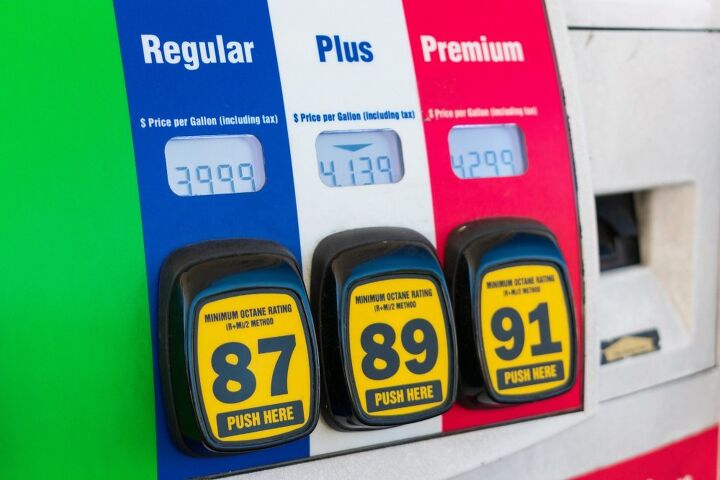#EnvironmentalProtectionAgency
Gas War: Republican States Sue EPA Over Californian Standards
Last week, a group of Republican attorneys general decided to sue the Environmental Protection Agency (EPA) over its decision to reinstate the waiver allowing California to set its own limitations on exhaust gasses and zero-emission vehicle mandates that would exceed federal standards.
The agency approved the waiver after it had been eliminated as part of the Trump administration’s fuel rollback on the grounds that it would create a schism within the industry by forcing automakers to produce vehicles that catered to the Californian market at the expense of products that might be appreciated in other parts of the country. However, Joe Biden’s EPA sees things differently and has aligned itself with the California Air Resources Board (CARB) in giving the state more leeway to govern itself in regard to emissions policing.
California Proposal Calls for 68 Percent EV Sales By 2030
Now that the U.S. Environmental Protection Agency (EPA) looks poised to reinstate California’s waiver under the Clean Air Act — allowing the state to establish stricter tailpipe emissions than the federal limits — the coastal region has resumed its quest to abolish gasoline-powered vehicles in earnest. While the California Air Resources Board (CARB) has yet to finalize all the details, the latest proposal calls for strengthened emissions standards for new light-duty vehicles in anticipation of the necessary approvals.
The scheme would require pure electrics and plug-in hybrids (PHEVs) to make up 35 percent of new-vehicle sales for the 2026 model year. By 2030, that number will become 68 percent before hitting 100 percent for MY 2035. CARB said zero-emission vehicles comprised 12.4 percent of the state’s new market in 2021, hinting that the number could have been higher without the Safer Affordable Fuel-Efficient (SAFE) Vehicles Rule Part One having stifled its progress.
How Much Are Updated CAFE Standards Actually Going to Save You?
With the United States Department of Transportation having formally announced upgraded Corporate Average Fuel Economy (CAFE) standards starting in 2024, the Biden administration was quick to point out that the decision would likely make automobiles even more expensive than they already are. However, the caveat to this was that it also assumed fuel prices would come down as improved efficiencies reduced North America’s hunger for fuel.
This effectively undoes fueling rollbacks instituted under the Trump administration on the grounds of reducing costs to consumers and cutting regulatory red tape for a prospective future where fuel prices are reduced without the need to spur oil production. But what does that actually mean in terms of dollars and cents?
Biden Administration Meets With Auto Execs, Including Elon Musk
The Biden administration held another meeting with automotive executives about how to ensure electric vehicles go mainstream. But this time it included Elon Musk, who runs the most successful EV brand in the entire world.
After taking criticism for shunning the Tesla CEO in earlier meetings, senior officials held an event on Wednesday where he and other industry leaders could contribute as to how the United States should handle a national charging infrastructure and spur adoption rates. Despite Musk having often expressed a dissenting opinion in regard to President Biden’s strategy, the White House said that the meeting was productive and resulted in a “broad consensus that charging stations and vehicles need to be interoperable and provide a seamless user experience, no matter what car you drive or where you charge your EV.”
Gas War: EPA Reinstates California's Ability to Set Emission Limits, EV Mandates
The U.S. Environmental Protection Agency has opted to reinstate California’s ability to set tailpipe rules and zero-emission vehicle mandates that are more rigid than federal standards. After quarreling for years over the Trump administration’s decision to roll back Obama-era fueling standards deemed untenable, the Golden State now has the ability to once again make harder for its citizens by forcing them to purchase the kind of vehicles it feels they should be driving — rather than leaving it up to the individual that’s actually buying the car.
Though it might not matter at this point. While California effectively served as a defensive shield against proposed fueling rollbacks while Trump was in office, the Biden administration strategy is broadly in line with its agenda of making gasoline unappetizing to consumers to ensure a speedy transition to electric vehicles. California doesn’t even want people to have access to gas-powered lawn care equipment. The state has effectively served as a test case for Build Back Better since before the phrase passed through the lips of a single politician.
U.S. Postal Service Decides to Snub Electric Vehicles
The United States Postal Service (USPS) has been under pressure from the White House to replace its aging fleet with all-electric vehicles. But it’s looking like mail carriers will continue doing their jobs in oddly shaped trucks that burn gasoline.
While the Biden administration’s green agenda calls for government fleets to begin transitioning to EVs, the USPS had already decided to purchase 165,000 examples of the Oshkosh Defense NGDV that’s dependent upon liquid fuel. Despite the contractor saying trucks could be converted into battery electric vehicles and/or hybrids, the vast majority will be wholly reliant on internal combustion. The USPS has decided that it’s just not cost-effective or practical to do anything else and no amount of pressure from the White House will be changing its mind.
Money on the other hand…
Biden EPA Tells USPS More Mail Trucks Should Be EVs
Last spring, the United States Postal Service announced that it would finally be replacing its fleet of Grumman Long Life Vehicles (LLVs) that have more than lived up to their name. Having entered into service in 1987 to replace the Dispatcher Jeep, the LLV is scheduled to be replaced by 150,000 new mail trucks from Oshkosh Defense. While the government originally wanted to use an all-electric platform, it was believed that rural routes probably required an internal combustion vehicle. Preexisting government contracts with Oshkosh likely made it a compelling manufacturer, though it annoyed some of the smaller candidates. Workhorse even sued the USPS last summer for not selecting its hideous entrant, though the official complaint was that the government hadn’t given EVs a fair shake.
That now appears to be changing because the Biden administration and Environmental Protection Agency (EPA) have asked USPS to hold off on the $11.3 billion contract with Oshkosh so electric options can be reevaluated.
U.S. EPA Readies Strictest Vehicle Emission Requirements Ever
We’ve got good news for people who want fewer choices in the type of cars they’ll be able to purchase in the future.
The U.S. Environmental Protection Agency (EPA) has finalized strict new vehicle emissions requirements through 2026 that would reverse the current standards set by the agency under former President Donald Trump. The Trump administration rolled back some of the long-term environmental policies implemented under the Obama administration. However, the Biden administration has said its biggest focus will be on addressing climate issues by dissolving those policies restoring the targets established when Barack Obama was still in the White House. The agency released some proposals in August outlining the general path it would be taking. But the details dropped by EPA Administrator Michael Regan on Monday vastly exceed those Obama metrics serving as a benchmark.
Opinion: Big Fines and EPA Crackdowns Spell Big Trouble for Speed Shops
The End of Leaded Gasoline, Lessons to Remember
Prior to 1970, buying leaded gasoline in the United States was as normal as picking up a carton of eggs or relaxing in your asbestos-laden home. After 1970, the U.S. Congress had officially adopted the Clean Air Act created the Environmental Protection Agency (EPA), and the gradual phasing out of leaded fuel began. While many bemoaned the lackluster performance of the malaise-era automobiles that followed, the rules continued to inform how vehicle manufacturers operated on a global scale.
But leaded gasoline hung in there for longer than you might assume. Most Western nations (including the United States) didn’t totally phase out leaded gasoline intended for passenger vehicles until the 1990s. Central Asia took even longer and parts of the Middle East and Africa continued to offer lead additives well into the 2000s. However, the United Nations Environment Program announced that leaded gasoline had officially become extinct over the summer, with Algeria being the final country to deplete its now-banned supply.
EPA Introduces Stricter Vehicle Emission Rules
The Biden administration released updated proposals for the mileage and emission standards to be imposed on passenger vehicles sold inside the United States this week. To the great shock of nobody, they move the country away from the targets established by the Trump administration so the nation can be brought back toward stringent Obama-era goals those later changes sought to get away from.
Though it’s not quite a return to form and environmentalists have already accused the plan of being insufficient — a take that’s as easy to predict as a sunrise. The Environmental Protection Agency would be technically setting rules that put us a year or so behind targets instituted during the Obama administration. But that’s largely understandable when that regime didn’t spend the last four years inside the White House. Besides, the Biden administration’s EPA has already confirmed it’s pushing for even tougher restrictions after 2026.
New EPA Chief Promises Tougher Vehicle Rules by Summer
With environmental regulations being a cornerstone of the Biden-Harris platform, the administration’s newly installed Environmental Protection Agency head has signaled that changes are coming over the summer. However, before that can take place, Administrator Michael Regan said wants to make some big changes within the agency that he believes will bring it back to the way it operated before being restructured by the Trump administration.
In the meantime, the EPA will be actively revising the previous president’s relaxed fuel economy standard designed to give the industry some flexibility in terms of keeping larger vehicles and traditional powertrains on sale — something we’ve covered repeatedly as it ended up being the proverbial football in the highly political American gas war. Considering Mr. Regan’s history of praising California’s climate response and energy protocols, his allegiances in the conflict should be obvious. However, he has also suggested that the EPA needs to make decisions on what’s feasible, indicating he may not push for extreme measures. Though he has not drawn any lines in the sand when it comes to potential bans of internal combustion vehicles or stringent penalties for power plants and oil refineries.
Senate Confirms Biden Admin Pick to Head EPA
On Wednesday, the U.S. Senate voted 66-34 to confirm Michael Regan as the next administrator of the Environmental Protection Agency (EPA). The Biden campaign had signaled that it wanted to clean house following appointments from the Trump administration well before the election, noting that the EPA was of particular importance since it needs to be in line with the bold energy strategy. Regan’s role as administrator is essential since he’ll have the ability to encourage the United States to reduce emissions wherever possible.
Whereas the Trump administration sought to undo Obama-era policies it deemed untenable and soften the power of highly influential independent executive agencies, Biden and company are bent on restoring those policies while strengthening some of its own. Regan (44) is presumed to pursue greenhouse gas emissions reductions for automobiles, powerplants, and oil refineries by any means available. He began his career as an environmental regulator for the EPA during the Clinton administration, stayed on through the Bush years, and later joined the Environmental Defense Fund — a nonprofit environmental advocacy group that frequently partners with multinational companies to create “market-driven” solutions to climate change.
Michael Regan Nominated as EPA Head
Michael Regan, who heads the North Carolina Department of Environmental Quality, is President-elect Joe Biden’s nominee as the next Environmental Protection Agency administrator.
Gas War: California Regulators Say Biden Should Embrace State's Emission Plan
While multiple states launch mandatory election recounts and President Trump throws around lawsuits like confetti Joe Biden and the mainstream media are preparing for his ascension from regular old man to Leader of the Free World — though that title doesn’t seem to get much play these days. Biden has already started holding meetings with foreign leaders and experts on how to go about heading the United States. Apparently, there’s even been some progress on how to govern the nation.
On Thursday, California Air Resources Board (CARB) Chairwoman Mary Nichols said the state’s arrangement with major automakers over fuel efficiency requirements would be ideal for the presumed Biden administration — which has promised to implement some of the most ambitious emissions standards the world has ever seen. Nichols also expressed excitement at the possibility of heading the U.S. Environmental Protection Agency (EPA) under a Biden presidency and is reportedly under serious consideration for the position.






























Recent Comments